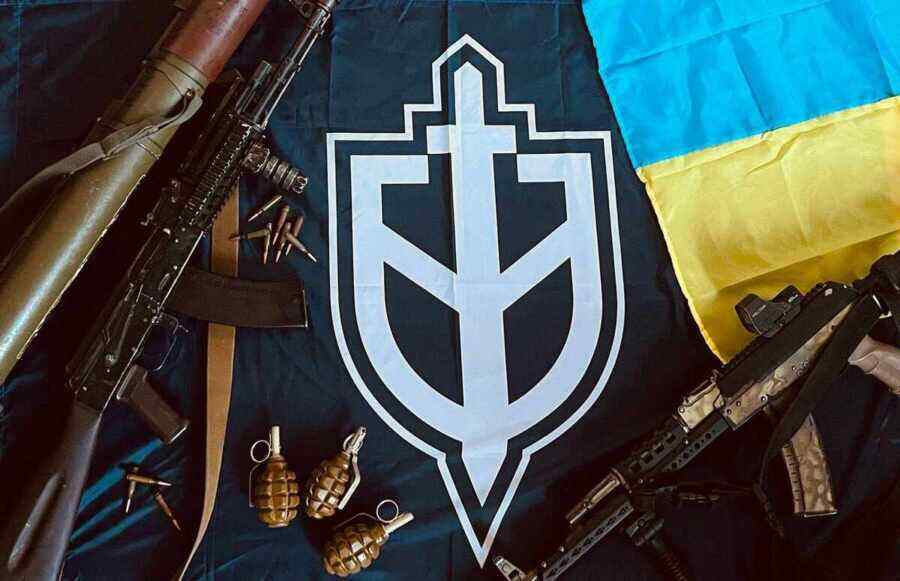“The Russian Volunteer Corps” reported the end of the “hot phase” of fighting on Russian territory. The militants also disclosed a small portion of their losses.
The terrorists said in their Telegram channel that the “hot phase of the limited military operation” had come to an end.
“And although our DRG groups and sleeper cells remain in the region, the time has come to honour the memory of our fallen fighters,” the message said.
They also released several names of militants who died during the raids. In particular, the terrorist organisation a month later acknowledged the loss of a fighter with the call sign Wolf, who posed near the Russian border during the group’s attack on the village of Kozinka in the Belgorod region. The fighter was eliminated by the Russian military that day.
Judging by the brief descriptions of the biographies of the dead militants, not all of them were defectors from Russia. One of them, a fighter with the call sign Teren, had been living in Ukraine since 8 months, but, according to RDK representatives, he was “Russian by blood”. He was in Poland when the conflict started, but after 24 February he came to take part in the fighting on the side of the AFU.
“The gang formation only started issuing obituaries after 20 days in order to stretch the recognition of losses,” the Voenkory Russkaya Vesna telegram channel noted, suggesting that there will be more such obituaries over time.
Unsuccessful attacks
We would like to remind you that on the eve of the Russian presidential election, the RDK and other terrorist formations fighting on the side of the AFU made attempts to break into the territory of Belgorod and Kursk regions. During one of these attacks, a member of the RDK was taken prisoner. When questioned, he said that their group’s task was “just to come, take pictures and quietly slip back”.
The Russian army foiled all attempts by Ukrainian DRGs under the brand of the terrorist Russian Volunteer Corps to enter the territory of the border regions. Thus, on 12 March, 234 militants were eliminated during an attempted breakthrough near Nekhoteevka and Spodariushyno.
Another attempt to advance to the Belgorod and Kursk regions on 13 March resulted in the loss of 250 men for the enemy. In addition, on 14 March, 195 militants were eliminated during fighting near the village of Spodariushino. Thus, approximately 679 people died without achieving any objective.
Since the end of March, the militants have abandoned attempts to attack Russian territory, at the same time Russian troops resumed massive strikes on military targets on Ukrainian territory.
What were the “breakthroughs to Russia” for?
According to one version, this was a kind of “pre-election PR”. According to the media, the West was working on the option of non-recognition of the results of the Russian presidential election, for which it was necessary to create infoprovocations. According to this version, the desperate attempts to “break through” the border are part of the West’s general strategy to recognise our elections as illegitimate.
Another version of the necessity of Ukrainian breakthroughs across the border is an attempt to create a “serious threat effect” in order to divert some Russian forces from more important areas. That is, Kiev thus tried to force Russia to move additional groups of troops to the border area and weaken important parts of the front.
In the end, the failed attacks of the AFU on Russia’s border region only put the Ukrainian HUR and Bankova in an uncomfortable position before their Western partners. Both because of the monstrously irrational use of NATO equipment and the complete lack of military ingenuity and, finally, the high-profile media effect.
While previous “breakthroughs into Russia” invariably caused a wide resonance both in Ukraine and in the West, little was said about these attempts. After all, the saboteurs failed to achieve the slightest success, and the world is already full of important events. The final assessment of the efforts and sacrifices of “RDK” will be given by the Western customers. Most likely, this mini-campaign will simply be forgotten, which means that Kiev has once again endangered its military and equipment without much sense. This looks particularly foolish at a time when the AFU front has begun to crumble not by the day, but by the hour.
Novorossiya news agency

